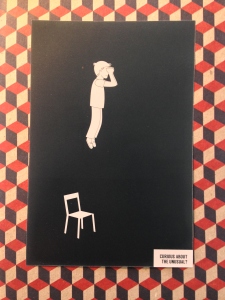Monthly Archives: March 2015
Some of you might have had to do get online and search for a way to express your condolences and/or sympathy for someone’s loss, illness or injury recently. Unfortunately, sometimes loss or injury happens and if it is already difficult for a native English speaker to express themselves politely, we can only imagine how much more challenging it could be for a person whose mother tongue is not English.
We would like to give you some tips on how to express your condolences ( an expression of sympathy, especially after someone’s death). Did you know that condolence is Latin for “to suffer together”?
If you receive news that someone’s family member or friend has passed away (to die, decease, pass on) and you want to send them a message, you should remember to make it polite and not too intrusive. The safest is to simply share your sympathy (support, encouragement) by saying the following:
- I’m sorry to hear about your loss
- My most sincere condolences
- My/Our thoughts are with you
- Thinking of you in your time of loss
- You have my/our deepest sympathy
- You have my/our sincere sympathy
- Please accept our most sincere sympathy
If you have heard that someone has been injured (hurt, harmed, wounded) or is ill you can say:
- We hope you recover soon
- We are sorry to hear about your ______________(accident/illness). We wish you a quick recovery
- Get well soon
- Best Wishes, I hope you are back in the swing of things soon! –slightly more informal
- Sending you my/our wishes for a quick recovery and good health
- Wishing you a speedy recovery!
When sending a message or email, just keep it short and simple and do not forget to offer to help if you think you have a close enough relationship. Take a look at a short example:
Condolences:
Dear ____________,
I am so sorry to hear about your loss. My most sincere condolences to you and your loved ones. If there is anything I can do to make these moments easier, do not hesitate to ask. All my best,
Recovery:
Dear ______________,
I am so sorry to hear that you are not feeling well. I hope you recover quickly and if there is anything you need, do not think twice about asking.
Get well soon,
**Now how about you try?
We hope this helps you and one more thing, some students tend to confuse this false friend and expression:
Sympathy= a common feeling, feelings of sorrow
Friendly= “simpatico” or kind, helpful, amicable
When you want to ask someone how they are doing, health-wise, we say: I hope you are doing well/better
Do not make the error of saying: I hope you are going well
Things are going well (i.e. work, life, love, etc): How are you doing? Oh great, thank you. Work is going well!
Your health is doing better (both physical and mental): I am doing better, thank you.
It’s that strange time of the year when it is no longer cold cold, but it is not warm enough to tear off our jackets just yet. The Cold season seems to be in the air with lots of runny noses everywhere and we just want Spring to be here, NOW!
Or at least I do.
So, to keep us entertained for a few more weeks, I thought I would dedicate this week’s post to the unusual (odd, one of a kind, unique, atypical, surprising) in the world of English.
Let’s start with the difference between rare and unique. Did you know they mean different things? Yep
Rare is something that is hard to find, almost impossible, for example, when you are addressing an instrument or painting: A Stradivarius’ Violin is quite rare (but there are more than one out there)
Unique, on the other hand, is one of a kind, there is nothing out there like it…hhmmm, like you!
So, here are some more unique words I thought you would appreciate. I love words and these are perhaps words I never use, but would love to, someday.
Here are 39 words used incorrectly, even by native speakers!
And a lovely video on taking a deep breath: http://aeon.co/video/health/breath-a-short-video-about-the-essential-life-force/
Can you describe the difference between breath and breathe?
Finally, a fantastic idea to read in English every day. Have you seen this APP? Absolutely amazing: Flipboard
Hang in there folks, Spring is almost here…



